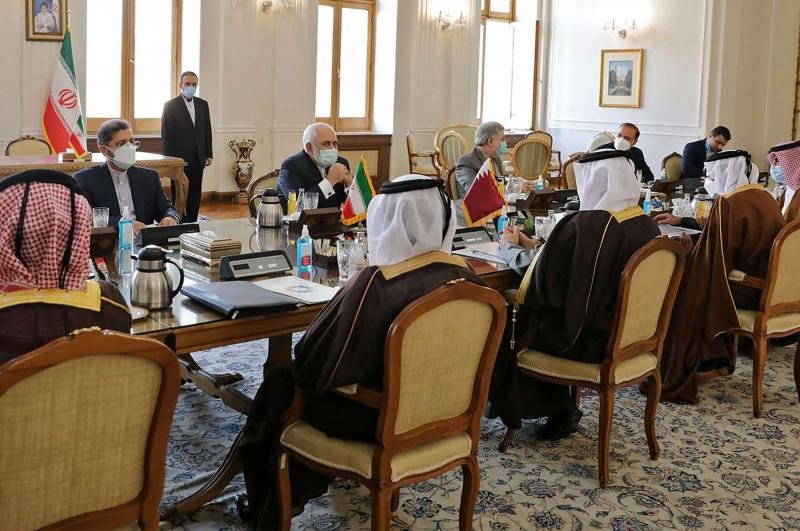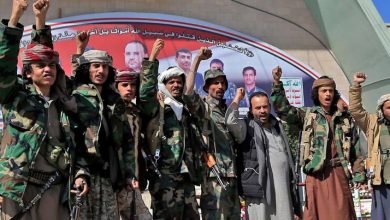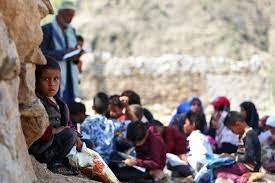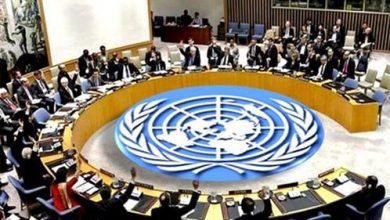Qatar postures as ‘neutral mediator’ in Yemen crisis, back channel for US-Houthi contacts

SMA NEWS – London
Informed political sources said Washington communicates with the Houthis through back channels most likely including Oman and Qatar.
US Special Envoy for Yemen Timothy Lenderking hinted at such channels without identifying the countries in question.
Sources revealed that Doha has been deploying intensive diplomatic contacts since the inauguration of US President Joe Biden, presenting itself as a “neutral mediator” entrusted by Washington with the role of a backchannel in the Yemen crisis.
They indicate that the sense of urgency projected by the new administration and the new US envoy’s statements make it clear that preparations for Qatar to play such a role had already been made and were not the result of recent efforts by the Biden administration after entering office.
Over the years, several meetings have taken place between US officials and Houthi leaders in the Omani capital of Muscat. Such contacts intensified during the tenure of former US Secretary of State John Kerry from 2013 to 2017. As top diplomat, Kerry promoted a settlement initiative in Yemen that was rejected by the internationally recognised government and Saudi-led Arab coalition.
Doha engaged in mediation between the Yemeni state and the Houthi rebels between 2007 and 2010. In doing so, it tried to save the Houthis from certain defeat, before former Yemeni President Ali Abdullah Saleh put an end to the Qatari drive.
At the time, Doha demanded to supervise the implementation of the provisions of the mediation. This, according to Yemeni experts, enabled it to pursue its designs.
Leaked documents later showed that in 2011, Qatar sought to abort the Gulf initiative and its implementation mechanism after it withdrew from the initiative. It also encouraged many Yemeni parties, including the Houthis and Muslim Brotherhood currents, to reject it.
Yemeni analysts confirm that Qatar played a decisive role in preventing the defeat of the Houthi militias through its membership in the Arab coalition in support of the legitimacy camp before ending its participation in that coalition in mid-2017. It later began to play an overt role in support of the Houthis politically, financially and in the media. At the same time, it worked from inside the legitimacy camp itself to sow confusion and stir up conflict within the anti-Houthi camp.
Over the past three years, Qatari associations have been remarkably active in Houthi-controlled areas, including within the Qatar Charity Foundation, which has opened an office in Sana’a and is believed to be a cover to finance the Houthis.
Observers believe that Doha’s long history of destabilisation activities in Yemen and support for the Houthi rebellion and other radical groups does not position it to be a true mediator, but instead brings it closer to Qatar’s goal of turning Yemen into an exporter of violence to neighbouring countries.
The same sources pointed out that the visit of Qatari Foreign Minister Sheikh Mohammed bin Abdulrahman al-Thani to Iran on Monday was part of Doha’s mediation efforts on two front — the first between Washington and Tehran regarding the Iranian nuclear file; and the second as a go-between in the Yemeni file based on its close ties to the Houthis and the Muslim Brotherhood, which carries influence in the “legitimacy” camp.
Qatari media said that the foreign minister carried a message from Qatari Emir Sheikh Tamim bin Hamad al-Thani related to Doha’s announcement that it is ready to help bridge the gap between Tehran and Washington on the nuclear issue.
The visit also coincided with statements made by Iranian officials about the conditions needed to reach a political settlement in Yemen..
Sources that spoke to The Arab Weekly did not rule out a Qatari role behind UN Envoy to Yemen Martin Griffiths’ visit to Tehran, which was the first of its kind. There is also speculation that Doha could be behind putting the Yemeni file on the table of final consultations to end the war in Yemen.
Doha has recently avoided showcasing its direct ties to the Houthis. It has instead offered the Iran-backed militias a regional political support base and an international communication channel in the Omani capital, Muscat, with all costs covered by Qatar.
Qatar has, however, lent its media support to the Houthis through Al-Jazeera TV channel, which has opened an office in Sana’a and adopted the Houthis’ narrative against the Saudi-led coalition, including Houthi justifications for the war.
The Arab Weekly previously revealed the arrival of leading Houthi figure Abdul-Malik al-Ajri to the Qatari capital, Doha, as an undeclared ambassador of the Houthis.
Ajri is known to be close to top Houthi leader Abdulmalik Al-Houthi.
Sources tell The Arab Weekly that Qatar is likely to soon move to a new stage in its support for the Houthis in Yemen, as it feels it enjoys a wider margin of manoeuvre after the signing the Al-Ula agreement, even if it does not seem inclined to carry out any of its provisions.
Doha is working to reap the dividends of rapid transformations in the region that serve its agenda. Among these shifts are the US’s confused foreign policy stances, which observers say have contributed to encouraging the Houthis to opt for political and military escalation by intensifying their attacks on Saudi territory while continuing their offensive towards Marib.
After removing the Houthis from its list of designated terrorist organisations, Washington has continued to reaffirm its commitment to safeguarding the security of its allies in the region.
On Tuesday, US State Department spokesman Ned Price urged the Houthis to halt the Marib attack, cease all military operations, end cross-border strikes on Saudi Arabia and participate in a UN-led peace process.
“The Houthis’ assault on Marib is the action of a group not committed to peace or to ending the war afflicting the people of Yemen,” he said in a statement.
The assault will only worsen the world’s most serious humanitarian catastrophe, Price pointed out.
“Marib is controlled by the legitimate government of Yemen. This assault will only increase the number of internally displaced persons and exacerbate the humanitarian crisis in Yemen.”
Price urged the Houthis to “constructively participate” in UN-led peace efforts and “engage seriously” with Lenderking, the recently appointed US special envoy for Yemen.
The Houthis responded to the US statement with a new wave of attacks using explosive drones on Abha International Airport in southern Saudi Arabia.
The US special envoy to Yemen said that his country will not allow for Saudi Arabia to be targeted and called for the kingdom to strengthen its capabilities in order to defend itself, noting that Iran plays a negative role in Yemen by arming, training and equipping the Houthis with weapons to target Saudi Arabia.
Observers of the Yemeni scene point out that there is a huge gap between the US administration’s statements about Tehran and its military proxy in Yemen, and Washington’s tangible moves on the ground.








